Search Results
Search
Filter results
Advanced Filters
Your search returned 10 Solutions
-
Fast-growing, easy-to-replicate methodology to evaluate and improve inclusion in schools
Perkins School for the Blind, U.S.: Supports global education for children with disabilities. Through the Model Program Approach, reached over 1 million children via 133 programs in 15 countries by June 2023.
Model Program Approach, Mexico -
The 'Accessibility Guide' illustrates low or no-cost solutions for companies to allow persons with disabilities accessibility and employment. It creates inclusive employment policies and promotes inclusive businesses.
The guide offers low to no-cost solutions that give persons with disabilities barrier-free access to the workplace. To generate effective and affordable solutions, employers are trained to interact with the surrounding community and with the persons with disabilities to define and build the accessibility solutions together.
Trust for the Americas, Collected ideas for access to the workplace, Mexico -
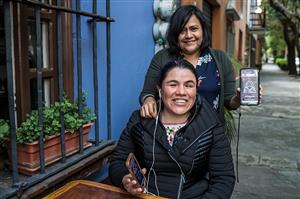
An app and a movement to combat gender-based violence against women with disabilities
CIDIP's App Morada, Mexico: Prevents gender-based violence with a video call-hotline for women with disabilities. Since 2020, used by 25,000 women, leading to a nationwide Purple App Movement.
App Morada , Mexico -
Housing and life-skills programme for adults with intellectual disabilities
In 2008, Mexico’s Fundación Inclúyeme began operating a programme that enables adults with intellectual disabilities to live independently by providing inclusive and serviced housing, support in finding employment, and recreational activities. By 2022 up to 3,000 people have benefited from the programme.
Incluyeme Foundation, Inclúyeme Adult Life programme, Mexico -
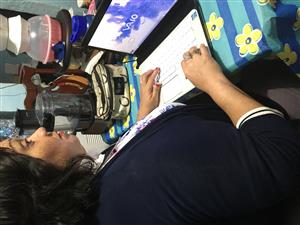
Private company joins a university in training students in web accessibility
"Los Laboratorios de Accesibilidad Web" (Web Accessibility Laboratories) is a project for improving web accessibility expertise in Latin America. The approach is based on a training course and the development of web accessibility assessment tools. Since the start in 2015, 150 programmers and designers have passed the course.
Hearcolors, The Web Accessibility Laboratories, Mexico -
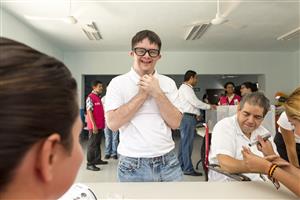
New guidelines are making Mexican elections accessible
The "Protocol for the Inclusion of People with Disabilities" is a binding national protocol. It contains requirements and guidelines for the availability of Braille ballots, improved physical access for people with mobility impairments, hospital polling stations as well as the reduction of both informative and communicative barriers.
Mexican National Electoral Institute, Mexico -
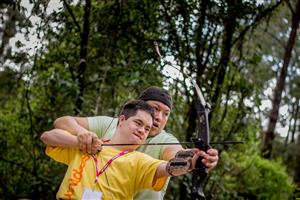
Young Volunteers as Agents for Social Inclusion
Unidos trains young people as volunteers – called "Allies" –, who then accompany people with disabilities to participate in the various Unidos social programmes. Through social franchising the programme has been rolled-out to six cities across the country, supporting 1,877 people with disabilities in 2017.
Unidos Somos Iguales, Mexico -
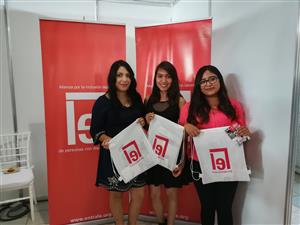
Labour inclusion index and job platform for disability-inclusive companies
Alianza Éntrale works to connect talented people with disabilities and employers by supporting companies in a number of ways, including digital training tools and certification. By mid-2020 the initiative included 847 companies and 35 NGOs with more than 9,821 people with disabilities in employment.
Mexican Business Council, Alianza Éntrale, Mexico -
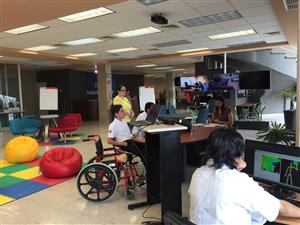
Providing free space to develop technological skills for young people at risk
The Democratizing Innovation in the Americas (DIA) Inclusive Lab provides youth with and without disabilities a free space to learn digital and technical skills and to develop new ideas using adaptive and high-end technologies such as 3D printers, laser cutters, screen readers, and voice recognition programmes.
Trust for the Americas, DIA Inclusive Innovation Lab, Mexico -
How to teach students with and without disabilities equally
Groups of Students with and without disabilities are taught together using the same curriculum and beeing subject to the same academic criteria. Students with disabilities are supported by facility adaptation, specialized materials and equipment, counselling, as well as training for teachers and staff.
Technological University of Santa Catarina, Mexico